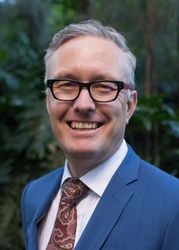Current Research
Research into the global school autonomy with accountability policies (SAWA) movements in the Island States of the South Pacific
\n
Critical approaches to researching the global school autonomy with accountability policies (SAWA) movements have refined significantly in recent years through, amongst others, the ReformEd project and the SAWA Atlas resource. The project has thus far focused on Europe and the Americas, but with no significant collation of the SAWA movements in the 14 sovereign states, 2 Free Associated nations and 19 dependencies of the South Pacific. Particularly following the recent adoption of the Pacific Islands Literacy and Numeracy Assessment (PILNA) (Belisle, Cassity, Kacilala, et.al, 2016;\ SPBA 2013; Tobin, Lietz, Nugroho, et.al. 2013), examining SAWA movements in the Pacific Islands affords an opportunity to present a paradigmatic case study for some of the key concerns of EERA network 23, including \u2018Europeanisation and the politics of globalisation\', and the extents to which notions of \u2018reconnecting communities\' in Europe and beyond are shaped by Eurocentric perceptions of community and education, constructs which, in the global SAWA movements, can form an incongruous fit for the complex ethnicities of Education in the South Pacific. It also presents an opportunity to apply a hitherto absent critical education sociology lens to the PILNA programme as it unfolds. The paper seeks to begin by a proposal to update the data for the SAWA Atlas, by setting the frames for researching the 12 largest pacific nations (excluding Australia and New Zealand), Fiji, Kiribati, Marshall Islands, Micronesia, Nauru, Palau, Papua New Guinea, Samoa, Solomon Islands, Tonga, Tuvalu and Vanuatu. Their problematized education systems are briefly surveyed, along with the public claims by their governments about their approaches to school education accountability and autonomy. A closer focus is then presented through multiple semi-structured interviews with key stakeholders in PNG, Fiji, Vanuatu and Tonga, based on the sample profile of the ReformEd methods in Europe and the Americas (Fontdevila, 2019: 4). Methods for framing evaluation of gaps between claim and practice are explored, along with the cultural and material challenges that contribute to these gaps, including the global geopolitical pressures, most notably implications for the rise of Chinese influence in the Pacific, and the ongoing complex relationships between the Pacific Islands, and Australia and New Zealand.
Finally, a further field study is proposed of the widespread phenomena of \u2018village schools\', as a subset of a Pacific village teacher- training initiative that the author and colleagues are pioneering as a foreign aid / soft diplomacy initiative with the Australian Department of Foreign Affairs and Trade (DFAT), modelled on the regional Australian clinical teacher training Hubs model, that had its first academic presentation by the author at the 2019 EERA conference in Hamburg. \
\n
Training \u2018on country, for country\'. Local teacher training through Clinical Training Clusters as a solution to community disadvantage
\n
Alienation of sub-communities in Western societies poses a risk to liberal democracy, perhaps its greatest risk. When democracy fails to ameliorate systemic disadvantage, then disaffected peoples withdraw from the social contract. It has long been understood that education based in liberal democratic ideals empowers and liberates such communities, inducting them into the materials and tools of social participation, and the dignity of work. Yet maintaining the quality of education amongst the marginalized remains an expensive challenge. One of the key causes is inconsistent teacher quality. This inconsistency is fuelled in part by an intrinsic repellence of talent away from the challenges of living and working amongst disadvantaged groups, often fed by geographic isolation, the lower quality of life, limited access to services, and perceived safety and opportunity risks to the young families of teachers. In the Australian regional, rural and remote (RRR) context, it has been shown that \u2018importing\' teacher talent into disadvantaged communities through incentives and inducements has largely failed to redress the teacher-quality problem, as such teachers mostly leave after a required tenure. I argue that the solution lies in halting the exodus of talent from these communities in the first place, such teachers already having a family and sentimental attachment to the genius loci of their homes, and a heightened interest in advancing their home communities or, to employ an Aboriginal term, \u2018on country\'. I examine an initial teacher education (ITE) pilot project in the NSW Hunter Region, that seeks to train teachers \u2018On country, For country\', through an innovative blend of financial and community incentives, the clinical practice model for initial teacher education, and a \u2018business to business\' partnership between consortia of schools in a tertiary partnership. The programme seeks to attract and retain local talent into teaching- training, by locating training entirely onsite through a mixed mode of delivery, and a bonded minimum viable numbers model. It is also attracting the attention of national policy makers who are increasingly frustrated with conventional ITE approaches. As the model is currently being developed in Remote indigenous teacher training, I propose that the model may be scalable to a range of contexts in Europe and beyond, including European concentrated migrant and refugee communities, ethnic minorities, Mountain Communities and European and Nth American indigenous communities.\
\n
The History of Independent Schools
Research Interests
Education policy, initial teacher education, new school development and planning, Australian education sector comparisons and statistics, models of religious education, secondary English education, text censorship in schools, Australian education history, education and society, literary arts

